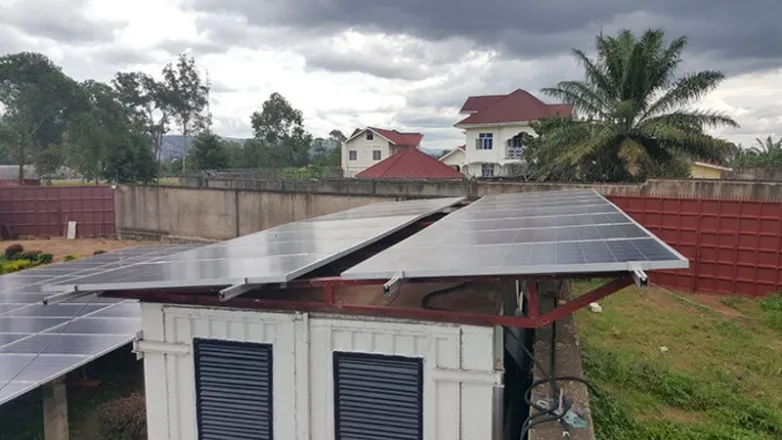Nuru Seeks $300 Million for Mini-Grids in Power-Starved Congo
- Series B round to raise $60 million, Series C $90 million
- Company is backed by UK Agency REPP, IFC and Proparco

Nuru, a solar mini-grid startup intending to bring power to 5 million people in among the globe's least-electrified countries, is close to concluding a $60 million funding round, with a larger one to follow later this year.
The Democratic Republic of Congo-based company, the name of which indicates light in Swahili, won the backing of the International Finance Corp. and the UK government-backed Renewable Energy Performance Platform, to name a few, for financing in the Series B round. The funds will certainly be made use of to boost generation from its four plants by about 10-fold to 13.7 megawatts at peak capability by adding 3 more larger-scale facilities.
The mini-grids are giving power to metropolitan areas in Congo's war-ravaged east, where there's little electrification of any type of kind, enabling them to leapfrog making use of power produced with nonrenewable fuel sources as well as mostly use eco-friendly resources in a region where security threats make it challenging to draw in investment. Just regarding 10% of Congo's 100 million inhabitants have accessibility to electrical power.
" In Congo we are a bit lonely. We are the just one running at scale," Jonathan Shaw, a Kenyan-born American who co-founded the company, said in an interview. "The reason we are by ourselves is due to the fact that it is incredibly hard. Security is the largest challenge."
More than 100 armed teams are energetic in eastern Congo, with virtually 7 million people displaced by violence, according to the United Nations.
Nuru was founded in 2015 as Kivu Green Energy as well as constructed Congo's first mini-grid in 2017. In 2020, it opened a 1.3-megawatt facility in the city of Goma, making it the biggest mini-grid in sub-Saharan Africa with no connection to a nationwide network.
Shaw, that initially visited the Congolese town of Beni in 2003, returned in 2013 as a teacher at the Christian Bilingual University after researching Congolese background. At the time nearly all power originated from undependable diesel generators that often harmed electric equipment.
The very first grid by the company, which he co-founded with his PhD Research Assistant Archip Lobo Ngumba, was improved a neighborhood-scale in Beni. The one in Goma was erected after the company drew in interest from Nairobi-based E3 Capital and also the Electrification Funding Initiative of the European Development Finance Institutions, or EDFI, which teams with each other development institutions from a variety of European nations
The solar panels are backed up by Tesla Inc. batteries and also diesel, and the grid has 2,700 connections, with the majority of the earnings originating from industrial customers such as companies having mobile-phone towers or water-treatment plants.
The profits of the Series B round will additionally consist of contributions from France's Proparco, E3 and the Gaia Impact Fund. It's expected to enhance the variety of individuals Nuru offers to half a million from regarding 50,000 currently.
The IFC claimed it's thinking about investing as long as $5 million in the round, while Camco, the environment and impact fund supervisor that oversees the UK government-backed REPP, said the platform has actually already contributed $500,000 and also will spend an additional $5.5 million at the close of the round.
Shaw's ownership of the company will certainly drop by concerning fifty percent from its current 43%, with about $28 million being increased in the form of financial obligation and the rest in equity. Smaller investors consist of E3 and EDFI, while employees very own 17%.
A $90-million Series B round is expected to get under way later on this year. To strike the longer term strategy of offering 5 million people, about $300 million will certainly be needed, according to Shaw.
Also read

